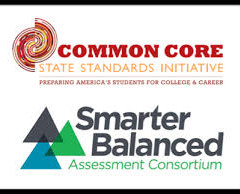 By Tom
By Tom
Last week my fourth graders took the Smarter Balanced Assessment, better known as “The SBA” or in some circles as “The S-BAC.” This was their – and my – second year with this test, although last year didn’t really count, since no one knew what they were doing and the scores didn’t matter. Now they do. Always the learner, and always the minimalist, I’ve condensed my reflections to three. So here they are; three things I learned about the SBA:
First of all, not everyone hates standardized tests. Or more accurately, not everyone hates this standardized test. And by not everyone, I mean my students. My students didn’t spend a lot of time listening to the “opt-out” movement, and neither did their parents, so for them the test was simply another hard thing we do at school. Other than running them through the training test and the practice test, I didn’t build the test up too much. No one puked, no one cried and none of them lost any sleep. After each of the five sessions, we had a brief discussion about how they felt and surprisingly, most of them actually enjoyed themselves. In fact, 25 of my 30 kids “had fun” during the first session. The number dropped to twenty after the last session, but still; it was hardly the child abuse that some teachers and parents report.
I do have some questions about the performance tasks, especially the math performance task. In the fourth grade SBA, there’s a math section and a literacy section. Within each section, there’s a Computer Adaptive Testing (CAT) and a Performance Task. The CAT is designed to continuously adjust the level of rigor within each student’s test based on their answers to each question. The test gets harder or easier based on how well they answer the questions. The Performance Task is not adaptive. In the literacy section, it consists of reading two articles about a specific subject (ours were about spiders and insects) and answering several extended-response questions followed by a writing prompt. The questions and the prompts, however, were not uniform. Some kids had more questions than others and it appeared that they were randomly assigned to an argumentative, informative or narrative prompt. That seemed a little weird at first, but I guess it makes sense to be ready for each of the three genres. The math Performance Task seemed – at least to me – like it varied widely in terms of the level of rigor. Some kids appeared to have much more difficult questions than other kids, which left my colleagues and me wondering why they didn’t simply give the same questions to each student. It will be interesting to see the scores.
Those questions notwithstanding, I honestly believe this is a good test. Here’s why: The Common Core is a solid set of standards that make sense. They’re well-articulated up and down the grade bands and – at least for now – they’ve been adopted by nearly every state. They might not be perfect (yet) but they’re certainly better than anything I’ve seen in the 31 years I’ve been teaching. So the standards are solid, and the SBA –from what I’ve seen – is well-aligned to the standards. Virtually every standard I taught this year was reflected on the test. I think that in very near future we’ll get a little more accurate aligning the level of rigor in our materials and instruction with that of the test and when that happens, I truly believe things will really pick up in our education system. I really do.
Please join the conversation. But do so respectfully. Testing is a charged topic and it’s easy to slip into a negative, nonproductive rant. But we’re teachers. We know how to discuss. We know to teach people to discuss! Let’s do it correctly.
Great post, Tom! I am totally in agreement that the CCSS are a good set of standards. I feel that, as an educator, they’ve helped me frame and map my entire year of instruction for several years now, leaving me the flexibility to design instruction that’s engaging but still academically, socially, and emotionally relevant to kids. I’m still conflicted on the tests, though. I just had my kids take another round of MAP, and it’s always so hard to see the trends!
What other assessments do you use?
Thanks for sharing your post and your students’ experiences. How bold – to complicate a simple narrative with an incongruous truth?!